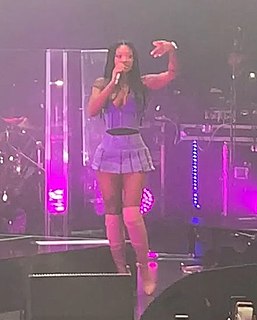A Quote by Edward Snowden
I hate these questions - I don't like talking about this stuff [popular culture], because it's so... to me, it's so ordinary.
Related Quotes
I always find it kind of more interesting when people ask questions like, "What were you like as a kid?" Or just kind of personal history stuff, like, "What was the lowest point of your life?" Because that would be like, "Huh, well, I'd have to think about that one." And then give an honest answer. I think a lot of people don't want to give honest answers, or they just are in business showbiz mode when they're talking about stuff, so that's probably why a lot of that kind of thing doesn't get asked.
Like commercial stuff is sort of cheap and disposable and fun and can be sort of interesting in many ways. I love being in popular culture and existing in the evolution of popular culture. But it's so different from painting, and it's so different from that sort of slow, contemplative, gradual process that painting is.
Popular culture as a whole is popular, but in today's fragmented market it's a jostle of competing unpopular popular cultures. As the critic Stanley Crouch likes to say, if you make a movie and 10 million people go see it, you'll gross $100 million - and 96 per cent of the population won't have to be involved. That alone should caution anyone about reading too much into individual examples of popular culture.




































